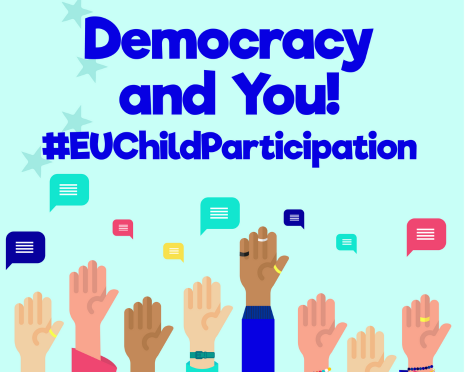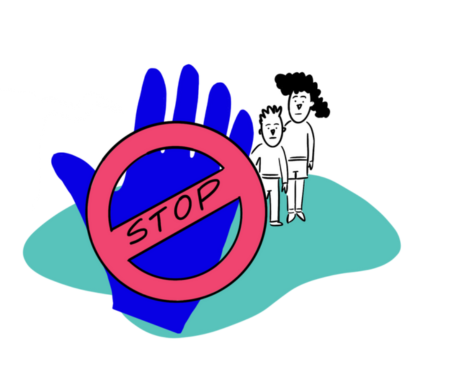
Speak up for democracy!
We are asking children and teenagers across the EU what they think about different ways of participating in democracy, voting and where they get information from.
Tell us what you think and help to make sure that when the EU makes decisions, your opinions are heard.
WHEN: NOW - UNTIL 30 APRIL, 2024
MORE: GET THE SURVEY IN YOUR LANGUAGE

A safer future for children
From May to October 2023, we asked you to tell us what adults could do to help children feel safe.
Your feedback will be included in EU's recommendations for improving child safety and shared with all the EU countries.
READ: WHAT CHILDREN SAID

What European children and teenagers are saying
Our youngest European citizens have told us what matters to them. Click through and find out exactly what that is.

Get involved in child participation activities
Look through the activities, events and news page. And see if there is an activity you could get involved in.
Sign up to our quarterly newsletter
SubscribeI hope we can form new connections and that people will be able to hear our voices because even though we might not be able to do much alone, I’m sure we can do a lot together.

Hear their voices
Children from across Europe and the world tell us what matters to them. And their dreams for the future of all children.
Click on the CC button in the video screen to get subtitles in your language.
Article 24 of the Charter of Fundamental Rights of the EU affirms the rights of children to express their views freely, and for those views to be taken into consideration on matters which concern them. In line with the EU Strategy on the Rights of the Child, this Platform contributes to the right for children to be heard.

